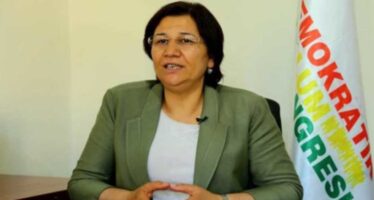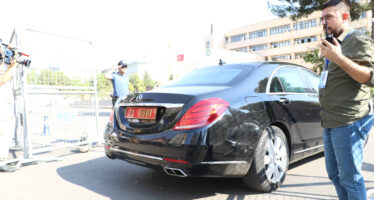UK Report: Kurdish Issue a “litmus test” for Democracy
![]()
HERMIONE GEE
ISTANBUL, Turkey — “Prospects for peaceful steps towards reconciliation between Kurds in the South East and the Turkish state appear to be receding,” says a new British parliamentary report on Turkey.
The process of ‘Democratic Opening’ initiated by the Justice and Development Party (AKP) in 2009 has been replaced by a “return to confrontation and armed conflict,” the report says, noting that the state’s treatment of the Kurdish issue should be seen as a “litmus test for Turkish democracy.”
The House of Commons Foreign Affairs Committee report, entitled “UK-Turkey relations and Turkey’s regional role” concludes that, although Turkey is a valuable economic and political partner for Britain, the shortcomings of its justice system and its poor human rights record make it hard to advocate closer ties between the two countries.
On the positive side, the report states, the AKP government has overseen an expansion of democratic and cultural rights for its Kurdish community, including a 24-hour Kurdish language state television channel and greater permitted use of the Kurdish language.
However, the report continues, the security situation has worsened significantly since the elections of June 2011, and by January 2012 security forces had killed hundreds of rebels, while dozens of people had died in attacks launched by the armed Kurdistan Workers Party (PKK).
There has also been “an intensified and sweeping wave of arrests of activists, journalists and lawyers, and officials and elected politicians of the main Kurdish political party, the BDP, for terrorism related offences, on the basis of alleged links to the Kurdistan Communities Union (KCK),” says the report, which has led to the “BDP’s functioning being severely disrupted.”
This is despite the fact that, according to the UK committee, the BDP is “advancing a moderate program which represented a potentially fruitful basis for engagement with the Turkish government – comprising enhanced Kurdish cultural rights and the decentralization of power from Ankara to a system of sub-national government.”
In fact, the report notes, the BDP’s lack of coordination with the PKK could be disadvantageous in so far as it can’t necessarily “deliver in support of any settlement process the disaffected Kurds in the South East, among whom support for [PKK leader] Mr. Öcalan remains considerable.”
Despite these findings, the report cautions that “British policy may need to be somewhat muted” in its support of Kurdish demands, on the grounds that “Turkish nationalists tend to see requests for enhanced minority rights as leading to a ‘slippery slope’ that ends in independence.”
Instead of pushing for Kurdish collective rights, the report suggests, Britain should encourage “the further integration into Turkish political structures of Kurds with some political standing.”
In the meantime, Turkish Prime Minister Recep Tayyip Erdo?an on Thursday presented a new package of economic incentives for Turkey’s eastern provinces, including the predominantly Kurdish South Eastern region. The package aims to encourage development in the country’s less economically developed areas by offering tax incentives to businesses operating in the eastern provinces.
“It is not possible to maintain sustainable development in all regions while some of them are deprived of new investments,” Erdo?an said at Thursday’s announcement. “The region is going through a transformation and we need the support of private industries to help pick up the relatively poorer cities.”
The ongoing unrest in the region should not impede its economic development, the Prime Minister added: “We as the government are committed to overcoming the obstacles presented by illegal groups that hinder the improvement of the eastern provinces with new investments.”
Related Articles
Sinn Fein MEP calls for international action for Leyla Guven
![]()
Sinn Féin MEP Martina Anderson has called for international action in support of Kurdish politician Leyla Guven who is currently on hunger strike and is now in critical condition
Erdogan’s regime seized Amed, Mardin and Van municipalities
![]()
Co-mayors of Amed, Mardin and Van municipalities were removed from office and the municipalities were placed under police blockade
Iran and PKK at risk of imminent war
![]()
ollowing heavy losses, including ten senior commanders, in clashes with Kurdish guerrillas, the Iranian army sent reinforcements and heavy weapons




